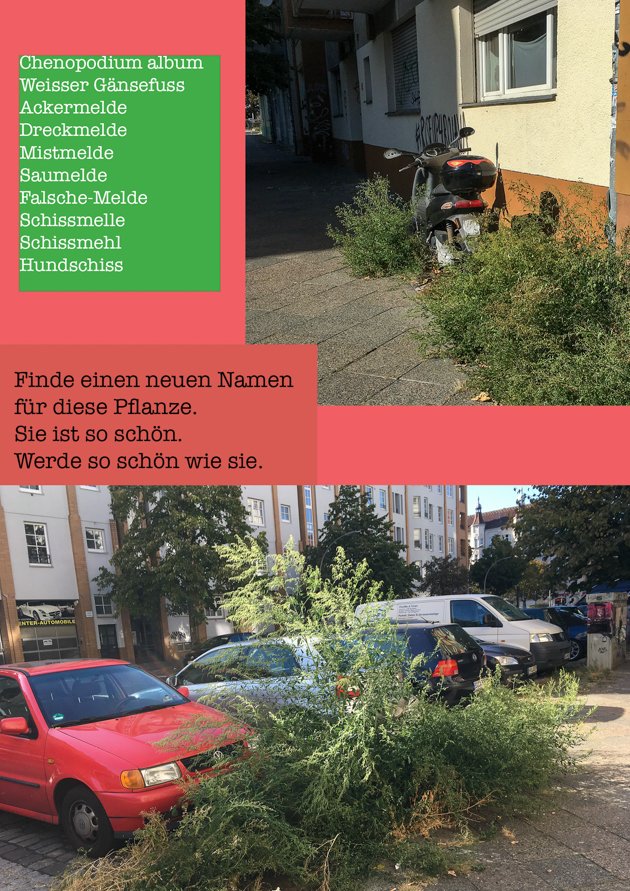Antje Majewski
Antje Majewski (1968) lives and works in Berlin. An artist and initiator of various research projects combining artistic approach and activism, she works primarily as a painter and filmmaker, and her transdisciplinary, collaborative practice explores ecofeminism, the political ecology of things, and the nature/culture entanglement. In her instruction, she conveys her amazement and admiration for the “parasitic” plant commonly known as lamb's quarters. In addition to offering a reflection on the notion of “weed”, the artist encourages us to question the way we look at the various plants in the city, capable of growing in the smallest interstice.
Fun Fact
There is a classification for the type of plant mentioned in Majewski's instruction: in Brazil, PANCs (Non-Conventional Food Plants) are plants or parts of plants that can be used for food, but are not used in our daily lives and are normally considered as weeds. There are some 30,000 species of edible plants in the world. However, these plants do not form a homogeneous group and can include, for example, native and exotic plants, as well as wild and cultivated plants.
Call to Action
In the digital age, there are applications that make it easy to identify plants all over the world using your phone. All you have to do is take a photo of a plant, which the application will compare with others in its database to recognize it. Not only will you be able to easily identify a plant, but at the same time you'll be helping to strengthen this database and improve the application's performance. This tool can be used to recognize both invasive species that need to be controlled, and endangered species that need to be protected. Many of these plants, even those that populate the corners of sidewalks, cobblestones and staircases like purslane and dandelion, are edible! Can you recognize them, and why not incorporate them into your diet by mixing them into soups, salads, gratins and smoothies?
Riddle
What are the properties of poppy petals?
A) Antioxidants and mucilage, for foaming
B) Vitamins A and C
C) Iron - those petals are tough!
Instruction
